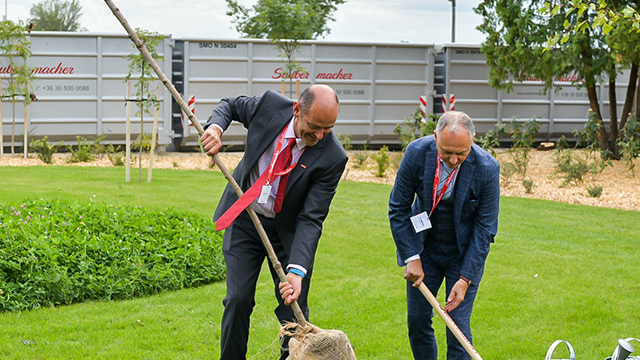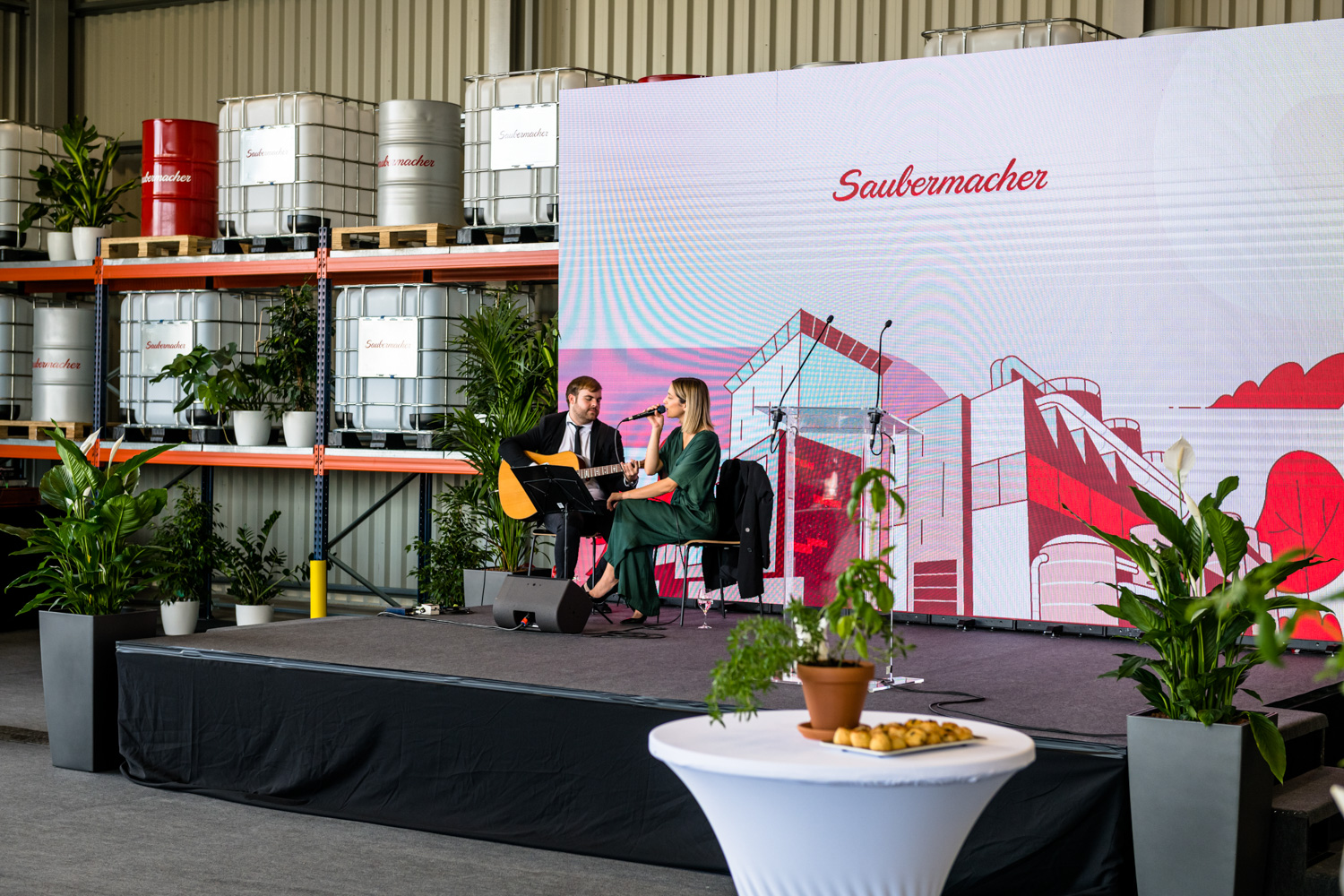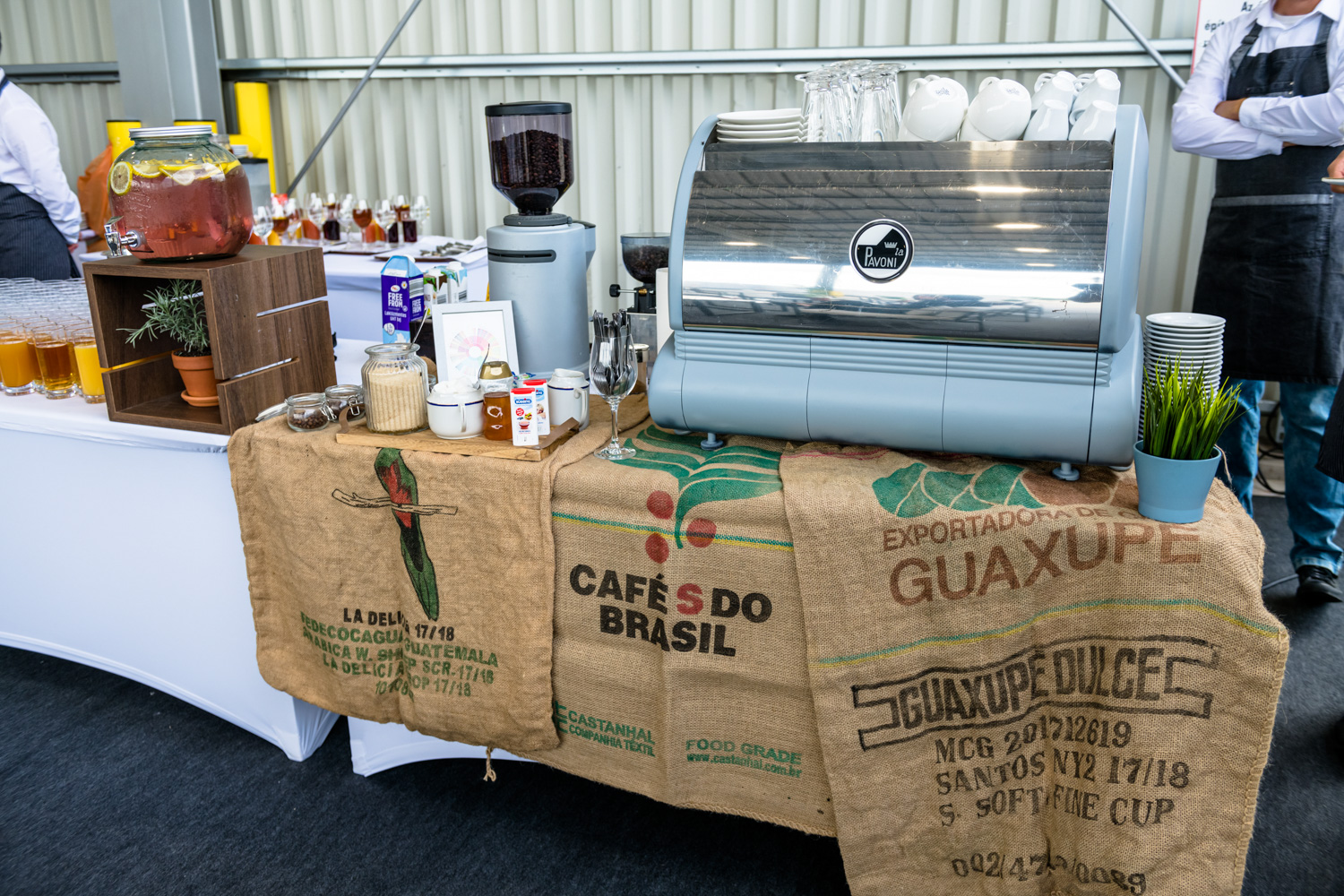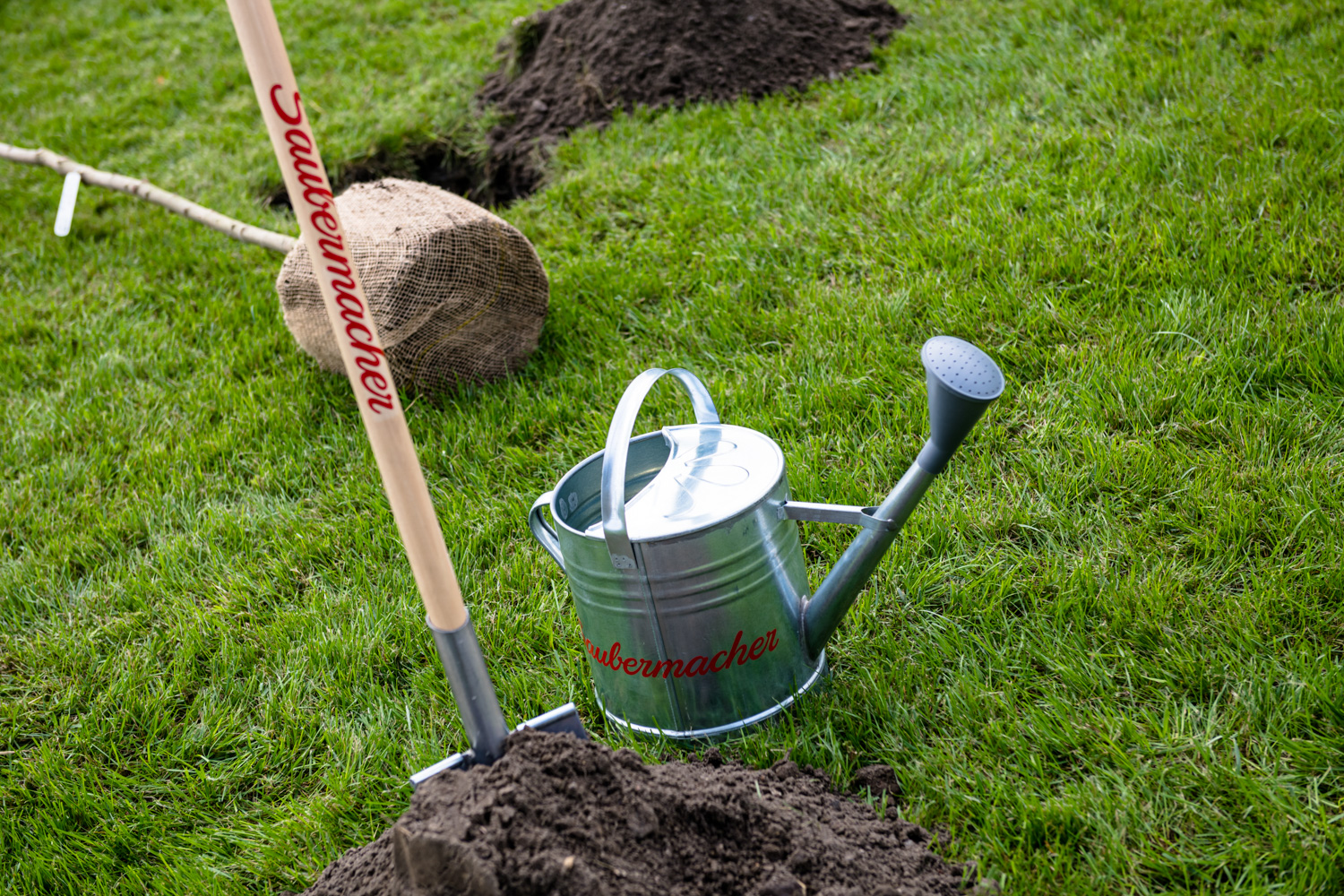Saubermacher, Site opening ceremony
The international waste-management company just reached a huge milestone when opening their new recycling facility - and we were there to make the ceremony an outstanding get-together. We still like to think about the time we made top managers in suits to grab a shovel and plant some trees!

The project
Saubermacher has been serving the circular economy for three decades. Their grand site opening had to be sustainable too.
We won the tender for the 150-person opening event, which took place at the new site in Kecskemét, in both Hungarian and German languages. The venue and the list of ministerial invitees were given. Our task was to make the event elegant and green while aligning with the spirit of the company (and our company!) to participate in the circular economy. Therefore, education also played an important role.
Everything was in our hands, from the bilingual registration website to catering, decoration, informational materials, guest and VIP reception, carbon neutrality, and event planning. This allowed us to organise a holistic and fundamentally sustainable event.
The challenges
Ministerial presence always comes with strict regulations. We tried to accomplish everything within these frameworks to create the greenest site opening event possible. Additionally, decorating the venue meant a different challenge. We made the site elegant with live plants and white tablecloths.
Green solutions we loved
- Tree planting as an interactive program
- Seed paper as badges and educational tools (we’ve never made so many green badges before!)
- Educational LED posters
The results
We put together the menu with the help of Heroes of Responsible Gastronomy (Felelős Gasztrohős) to minimise the footprint of ingredients and carefully planned the portions to reduce food waste. We left waste management to the best – nobody knows it better than Saubermacher. To offset the unavoidable carbon dioxide emissions, we’re supporting the reconstruction project of WWF.
Despite all these efforts, we couldn’t influence some things . VIP guests had to arrive at the site opening separately in regulated, private cars.
Overall, this event left behind 12 tons less carbon dioxide compared to if we had implemented it using traditional methods, not thinking of sustainability.


